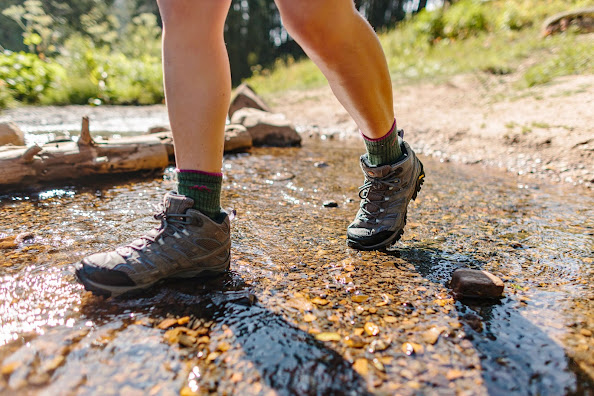Which Is Better for Hiking: Shoes or Boots?
The appropriate footwear is crucial for hiking and enjoying the outdoors. Choosing hiking shoes or boots might affect your comfort, safety, and hiking experience. Which suits you? Here are the advantages and downsides of each solution to help you decide.
Hiking Shoes
Lightweight and Agile: Low-cut hiking shoes provide for ankle flexibility. This shape makes them perfect for day treks on well-maintained paths and lower foot loads.
Many hiking shoes include mesh panels and breathable materials, ideal for warm-weather trekking. It reduces foot overheating and sweating, lowering the blister risk.
Boots take longer to break in than hiking shoes. This lets you hike faster without pain.
They may be worn for trail running, light hiking, and urban experiences. They're also attractive for regular use due to their comfort and elegance.
Cons:
Hiking shoes provide little ankle support, which may be problematic on steep and uneven terrain. You'll require balance and ankle strength.
Hiking shoes give some protection, but boots provide more. This increases foot exposure to rocks, roots, and debris.
Hiking Boot
Superior Ankle Support: Hiking boots offer higher ankle collars for stability. This ankle protection is essential on uneven routes or with a large load.
Boots provide outstanding water, mud, and rugged terrain protection. The extra protection may make a big difference on rainy, cold, or rough walks.
Hiking boots can survive challenging circumstances and long-term usage. Their durability is better than hiking shoes.
Hiking boots provide support and stability for backpackers and large load carriers. Your feet will enjoy the help.
Cons:
Hiking boots weigh more than shoes. This weight may be optional for shorter day treks and tiresome over long distances.
Break-In Period: Boots take longer to conform to your feet and become comfy. This implies long hikes may need planning.
Hiking boots may be overkill on accessible routes. Such situations may not need their rigidity and weight.
The verdict
Your demands and tastes determine whether you choose hiking shoes or boots. Consider these factors:
Hike Difficulty: Evaluate the terrain. Hiking shoes are enough for somewhat tricky hikes. Hiking boots are excellent for rugged terrain or oversized loads.
Personal Comfort: Most important. Test out shoes and boots to find which feels best. Remember that comfy shoes reduce trail blisters.
Weather and Season: Consider hiking weather and season. In summer, breathable shoes are best, while waterproof boots are needed for wet or snowy walks.
Pack Weight: A boot's support might save you while carrying a backpack with camping gear. Shoes may work for lightweight backpacking or day walks.
The best option depends on your hiking style and demands. Some hikers keep hiking shoes and boots, picking the proper footwear for the excursion. Whatever you select, break in your boots before trekking to guarantee comfort and enjoyment.




Comments
Post a Comment